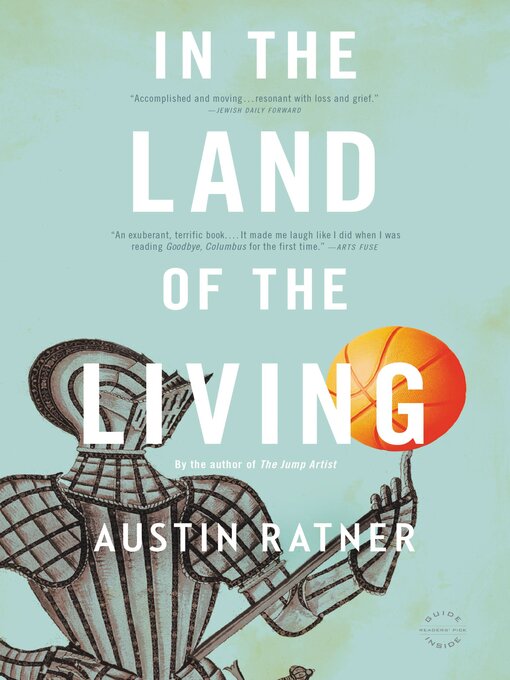
The Auberons are a lovably neurotic, infernally intelligent family who love and hate each other-and themselves — in equal measure.
Driven both by grief at his young mother's death and war with his distant, abusive immigrant father, patriarch Isidore almost attains the life of his dreams: he works his way through Harvard and then medical school; he marries a beautiful and even-keeled girl; in his father-in-law, he finds the father he always wanted; and he becomes a father himself. He has talent, but he also has rage, and happiness is not meant to be his for very long.
Isidore's sons, Leo and Mack, haunted by the mythic, epic proportions of their father's heroics and the tragic events that marked their early lives, have alternately relied upon and disappointed one another since the day Mack was born. For Leo, who is angry at the world but angrier at himself, the burden of the past shapes his future: sexual awakening, first love, and restless attempts live up to his father's ideals.
Just when Leo reaches a crossroads between potential self-destruction and new freedom, Mack invites him on a road trip from Los Angeles to Cleveland. As the brothers make their way east, and towards understanding, their battles and reconciliations illuminate the power of family to both destroy and empower-and the price and rewards of independence.
Part family saga, part coming-of-age story, In the Land of the Living is a kinetic, fresh, bawdy yet earnest shot to the heart of a novel about coping with death, and figuring out how and why to live.
-
Creators
-
Publisher
-
Release date
March 12, 2013 -
Formats
-
Kindle Book
- ISBN: 9780316216029
-
OverDrive Read
- ISBN: 9780316206105
-
EPUB ebook
- ISBN: 9780316206105
- File size: 568 KB
-
-
Accessibility
No publisher statement provided -
Languages
- English
-
Reviews

Loading
Why is availability limited?
×Availability can change throughout the month based on the library's budget. You can still place a hold on the title, and your hold will be automatically filled as soon as the title is available again.
The Kindle Book format for this title is not supported on:
×Read-along ebook
×The OverDrive Read format of this ebook has professional narration that plays while you read in your browser. Learn more here.